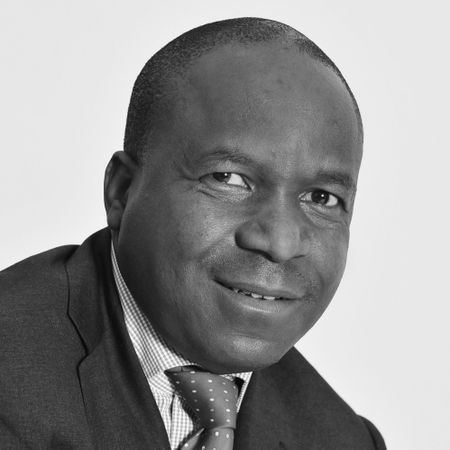In theory, a “national dialogue” sounds necessary — a grand, inclusive conversation designed to chart a course out of sweeping structural crises.
But in practice, the current iteration risks becoming a hollow vanity project: a carefully choreographed performance by political elites, masquerading as transformative reckoning, but bereft of transparency, tangible commitment or ownership by the people.
This National Dialogue, commissioned by President Cyril Ramaphosa, is emerging less as a path of healing — addressing seemingly insurmountable socioeconomic issues — and more as a varnish meticulously applied to cover over the deep cracks threatening the very foundations of our society.
Let us pierce the PR veil: from its inception, this initiative has been far more characterised by gestural symbolism than courageous reform.
Yes, there are meetings. Yes, there are soundbites about “inclusivity” and “national unity”. But beyond the spectacle, clarity is conspicuously absent.
Who designs the agenda? Where is the unvarnished documentation of participants’ positions, agreements, and, just as critically, disagreements?
Accountability? It is nowhere to be seen. Instead, we witness a calibrated, closed-door process that echoes the exclusivity of watershed interventions — like the Convention for a Democratic South Africa (Codesa) and the National Economic Development and Labour Council (Nedlac) — where certain voices were granted airtime and others, particularly those of the marginalised, were systematically excluded.
Among the most sour ironies of this spectacle is how it masks as progress what is really a retreat from accountability. The government drapes itself in the language of “dialogue”, “listening”, and “consensus-building”, yet consistently fails to release clear timelines, deliverables, or even an independent audit mechanism.
A feelgood charade
Without these, the entire exercise remains unmoored — a feelgood charade. And in this absence, citizens — who yearn for deep structural redress — grow angrier, resentful and even more alienated, sensing that their pain is being ritualistically acknowledged in words alone, not addressed in policy or reform.
This is dangerous. As social commentators remind us, when citizens perceive dialogue to be superficial and performative, anger escalates.
Real people — workers, students, community activists, township residents, rural communities — do not want symposiums of self-congratulation. They want real solutions: justice, economic equity, quality education, healthcare that doesn’t bankrupt families, land reform that returns dignity, and governance that isn’t riddled with corruption.
But this National Dialogue offers none of that; it substitutes form for substance.
Moreover, the lack of full transparency isn’t accidental — it is strategic. By controlling the narrative and confining discourse to carefully selected participants — many of whom are politically connected or institutionally entrenched — the architects of this initiative limit dissent, forestall disruption and preserve the status quo.
Systemic inequities remain untouched, while elites enjoy the illusion of legitimacy through media optics: a televised statement here, a glowing article there, a congratulatory headline lengthening the shelf life of government spin.
But let us not mince words: dressed-up conversations are not leadership. They are weak sedatives, meant to lull the public into believing progress is being made.
Yet beneath the vocal harmonies lies a rhythm of inertia. There are no plans, no commitments to constitutional reform, no public financing to remedy inequality, no enforcement instruments tied to dialogue outcomes.
The initiative is effectively immobilised, waiting for political whim, subject to partisan will, and devoid of the coercive impetus required to compel structural transformation.
The government — and its big business allies — may hope that the spectacle of dialogue will buy time: to slow down protests, silence dissenting voices, and repackage governance as consultative rather than coercive.
But if the public discerns that this dialogue is a mirage — a cosmetic application over rotting infrastructure — the backlash won’t merely persist. It will intensify. Anger morphs into radical realisation: that institutions meant to protect and empower citizens have become self-serving, out of touch and cowardly.
For the National Dialogue to avoid that fate — and regain moral integrity — it must be radically reconfigured.
First, full transparency isn’t optional; it is non-negotiable. Every stage of the process and how participants were identified must be documented, recorded and made freely accessible — agendas, minutes, draft proposals, dissenting opinions, all.
Second, civic representation must not be tokenistic. Grassroots movements, community organisations and historically excluded voices must be central, not ornamental.
Measurable commitments
Third, there must be measurable commitments: a public road map, with timelines, milestones, responsibility assignments and monitoring mechanisms independent from government interference.
And fourth, consequences must follow — if outcomes are not implemented, participating officials must be made to answer to the electorate, including through binding referenda or judicial oversight.
In the absence of these fundamental reforms, this National Dialogue will remain not a beacon of hope, but a hollow performance — “a conversation about how best to paint over the cracks” as critics suggest — without the substance of genuine rebuilding.
And here lies the final and grimmest danger: when dialogue is unmoored from implementation while seemingly designed to shield past political administrations from accountability, it amplifies the very crisis it purports to address. It sows cynicism, delegitimises our institutions and green-lights the rise of populist or radical alternatives.
In a society facing deep divides, escalating inequality and institutional distrust, that outcome isn’t hypothetical — it is all too possible.
Of course, a national dialogue is necessary. But it must be meaningful, inclusive, and yield clear, actionable and measurable outcomes. Recycling self-congratulatory platitudes about the Constitutional Assembly that produced our current Constitution — or the largely failed or ineffectual National Development Plan — while ignorant of the zeitgeist does not in itself make for a cogent national dialogue.
The public deserves a national dialogue that speaks truth, empowers communities and delivers reform.
What we have instead is a curated exercise in surface-level conversations, conducted by the few, witnessed by many, but owned by none. It is time to dismantle the charade — and start conversing with courage, transparency, and real consequence.
Let’s make our democracy work! DM




